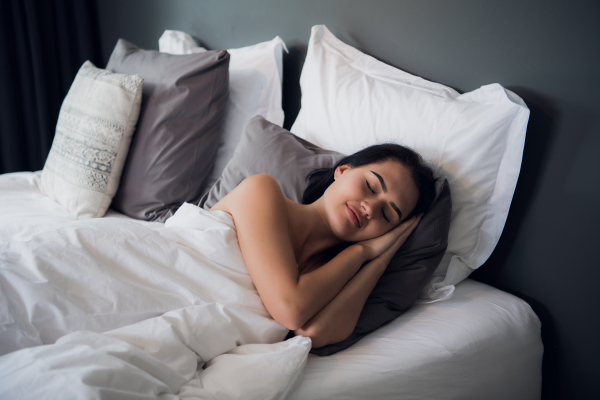- Europa
-
- Amstetten(7)
- Bad Schallerbach(1)
- Baden(4)
- Berg(1)
- Braunau am Inn(5)
- Bregenz(3)
- Bruck an der Mur(1)
- Graz(4)
- Hartberg(1)
- Innsbruck(5)
- Kemmelbach(1)
- Kitzbühel(4)
- Klagenfurt(5)
- Krems an der Donau(1)
- Kufstein(5)
- Leibnitz(1)
- Lienz(1)
- Liezen(1)
- Linz(5)
- Oetz(1)
- Punitz(1)
- Radstadt(1)
- Salzburg(5)
- St Polten(2)
- Steiermark(1)
- Steyr(1)
- Steyregg (1)
- Traun(3)
- Vienna(26)
- Villach(5)
- Völkermarkt(1)
- Wels(5)
- Wien(1)
- Wiener Neustadt(4)
-
- Aalst(1)
- Aarschot(2)
- Affligem(1)
- Anderlecht(5)
- Antwerp(11)
- Antwerpen(1)
- Arlon(6)
- Ath(2)
- Aubange(5)
- Bastogne (2)
- Blankenberge (1)
- Bruges(5)
- Brussels(15)
- Charleroi(5)
- Deinze(3)
- Dendermonde(1)
- Diest(2)
- Etterbeek(5)
- Geel(1)
- Genk(5)
- Gent(6)
- Geraardsbergen(1)
- Grimbergen (2)
- Hasselt(5)
- Heusden- Zolder(2)
- Ieper(1)
- Izegem(1)
- Knokke(4)
- Kortrijk(2)
- La Louviere(2)
- Leuven(5)
- Liege(4)
- Limburg(4)
- Lommel(1)
- Mortsel(1)
- Oostende(1)
- Turnhout(1)
-
- Chelyabinsk(1)
- Dubna(4)
- Gelendzhik(1)
- Irkutsk(1)
- Kaliningrad(1)
- Kazan(4)
- Krasnodar(3)
- Krasnoyarsk(1)
- Maykop(1)
- Moscow(50)
- Nizhny Novgorod(4)
- Novosibirsk(1)
- Omsk(1)
- Penza(1)
- Rostov-on-Don(2)
- Saint Petersburg(13)
- Samara(1)
- Saratov(1)
- Serpukhov (2)
- Sevastopol(3)
- Sochi(5)
- Stavropol(1)
- Surgut(1)
- Tyumen(2)
- Ufa(2)
- Vladivostok(3)
- Yekaterinburg (11)
-
- Alicante(8)
- Barcelona(113)
- Benalmadena(1)
- Benidorm(7)
- Castellón de la Plana(1)
- Denia(1)
- Estepona(1)
- Fuengirola (3)
- Ibiza(49)
- Jerez de la Frontera(1)
- Lanzarote(1)
- Las Palmas de Gran Canaria(5)
- Madrid(57)
- Malaga(9)
- Marbella(48)
- Murcia(1)
- Oviedo(1)
- Palma de Mallorca(48)
- Puerto Banus(3)
- Seville(1)
- Tarragona(1)
- Tenerife(7)
- Torrevieja(3)
- Valencia(9)
- Vigo(1)
- Zaragoza(1)
- Worldwide
Scandinavian Sleep Hacks for Quality Rest
 Research from Gallup's World Happiness Reports highlights Denmark, Finland, and Iceland as some of the happiest places on Earth. One contributing factor is the balance between work, personal life, and rest, with a strong emphasis on quality sleep. Let's delve into Scandinavian sleep hacks with insights from experts.
Research from Gallup's World Happiness Reports highlights Denmark, Finland, and Iceland as some of the happiest places on Earth. One contributing factor is the balance between work, personal life, and rest, with a strong emphasis on quality sleep. Let's delve into Scandinavian sleep hacks with insights from experts.Hot Bath or Shower Before Bed
Firstly, altering body temperature plays a crucial role in our circadian rhythm, our biological clock. Evening temperatures naturally decrease, signaling the body that it's time to sleep. Taking a warm shower, bath, sauna, or spa followed by a cooler room temperature simulates this change, acting as a cue for bedtime.
The habit of taking a hot shower is not only physiological but also psychologically associated with preparing the body for rest. It's best to take this ritual an hour or two before bedtime to allow the body to cool down. Moreover, it helps clear the mind of unnecessary thoughts, organizing them and calming the nervous system.
Reading Books Before Sleep
Constantly being under stress, our minds often dwell on past and future events before sleep. Engaging with an interesting book plot helps distract from intrusive thoughts.
Studies confirm that reading before sleep genuinely enhances its quality. Reading a favorite book chapter in bed helps reduce stress, akin to meditation or yoga.
Printed versions are preferable. While convenient, electronic books, tablets, or smartphones emit blue light that suppresses melatonin production, hindering sleep onset.
Sleeping with an Open Window
The ideal sleep environment is quiet, dark, and cool. For example, Swedes sleep with open windows year-round, as fresh, cool air enhances sleep quality. However, considerations exist.
In spring, this maintains an ideal sleep temperature of around 18°C. Yet, in winter or summer, it might be too cold or hot for some individuals in such conditions. Additionally, outside noises can serve as white noise, aiding some in falling asleep, while others prefer complete silence. This preference is individual.
The location of windows matters too. If facing a noisy street or bustling area, peace and fresh air are compromised. Conversely, windows opening to trees or a forest enhance sleep quality.
Sleeping with a Partner under Separate Blankets
Everyone sleeps differently. Restlessness is common, with accidental movements disturbing partners and causing discomfort, such as tugging blankets.
Body heat is a factor, especially in warmer weather, as men typically have higher body temperatures than women. Less contact during sleep promotes deeper and higher-quality rest.
Sleeping under a Weighted Blanket
Weighted blankets contain tiny silicon balls or plastic pellets, increasing their weight. Research indicates their benefit for sleep, aiding quicker sleep onset and fewer nighttime awakenings. These factors are crucial for quality rest.
The feeling of being hugged and the sense of tightness mimic being in the womb. Assuming a fetal position under such a blanket provides a sense of security. Moreover, serotonin production increases, promoting relaxation and faster sleep onset.
However, individuals with respiratory illnesses, sleep apnea syndrome, or limited physical abilities should avoid weighted blankets. The pressure on the chest during such conditions is contraindicated.









